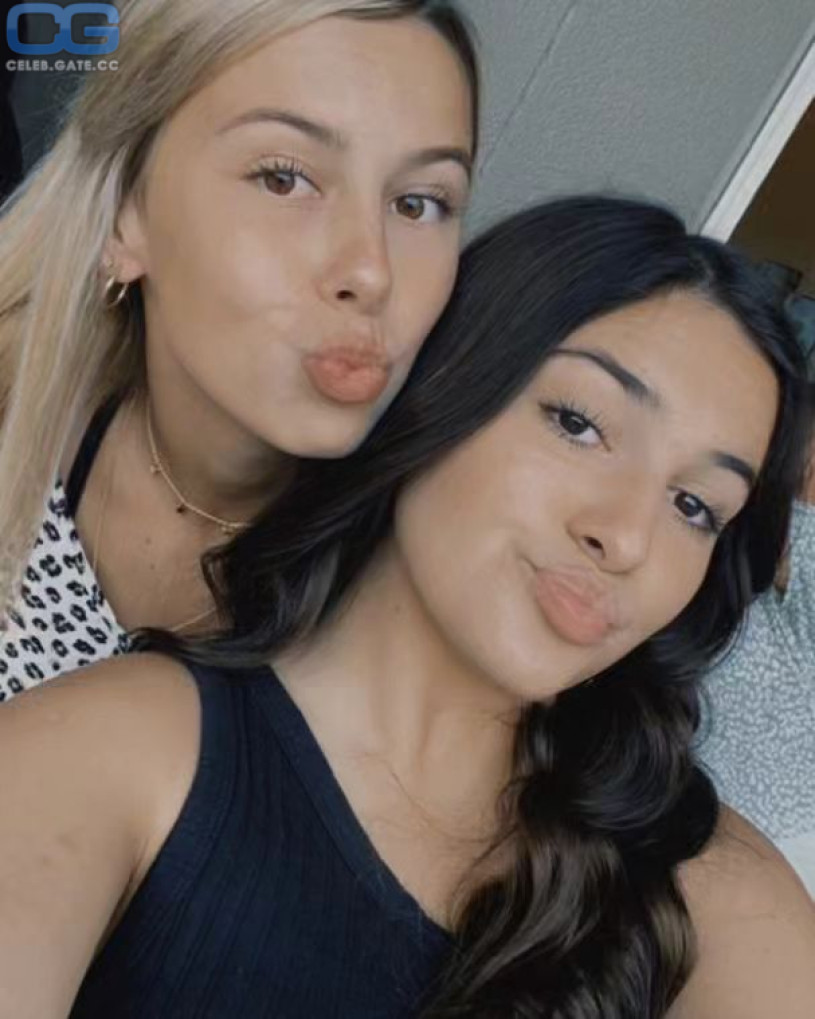In the hyper-connected world of today, where a single video can rocket an individual to internet stardom, the case of Hailey Welch shines a light on both the allure and perils of digital fame. Known as the "Hawk Tuah Girl," Welch's journey from a preschool teacher in Tennessee to a viral sensation has been nothing short of meteoric. Yet, as her popularity surged, so too did the darker side of her newfound fame. The internet's voracious appetite for content often blurs the lines between admiration and exploitation, and Welch's experience is a testament to this troubling phenomenon.
Welch's rise began with a lighthearted TikTok video filmed in Nashville for Tim's TikTok channel and Dee TV in June 2024. Her candid response to an interviewer's question quickly captured the public's imagination, leading to millions of views and shares across social media platforms. However, the rapid spread of her content also brought unwanted attention, including the circulation of alleged nude photos and videos. This alarming trend underscores a critical issue in the digital age: the exploitation of individuals, particularly women, whose privacy is often compromised in the name of viral content.
| Category | Information |
|---|---|
| Full Name | Hailey Welch |
| Known As | Hawk Tuah Girl |
| Age (as of late 2024) | 22 |
| Nationality | American |
| Hometown | Tennessee, USA |
| Occupation | Internet Personality, Preschool Teacher, Podcaster |
| Viral Moment | June 2024 TikTok video interview in Nashville |
| Podcast | Talk Tuah with Hailey Welch |
| Social Media Following | Over 2 million followers on Instagram |
| Controversy | Alleged leaked nude photos and videos |
| Playboy Offer | Turned down offer from Playboy magazine |
| Reference Link | Hailey Welch's Instagram |
The internet's ability to amplify voices and stories is unparalleled, but it also presents unique challenges. Welch's experience mirrors that of other celebrities and influencers who have faced similar invasions of privacy. The circulation of non-consensual intimate content is not only a violation of personal boundaries but also a reflection of societal attitudes toward women in the public eye. Celebrities like Bella Thorne and Emily Ratajkowski have openly discussed their struggles with privacy in the age of digital fame, highlighting the broader implications of this issue.
- Vigamovie Your Ultimate Destination For Entertainment And Movie Streaming
- Aagmal Gives The Ultimate Guide To Generosity And Making A Difference
Welch's decision to turn down an offer from Playboy magazine further underscores her commitment to maintaining control over her image and narrative. In an industry where commodification of the female body is rampant, her choice to prioritize her dignity and privacy sets a powerful example. This decision resonates with the growing movement advocating for women's rights to bodily autonomy and respect in the digital realm.
The case of Hailey Welch also brings to light the role of social media platforms in either exacerbating or mitigating such issues. Platforms like Instagram and TikTok have faced criticism for failing to adequately protect users from harassment and exploitation. While these platforms have implemented policies to combat the spread of non-consensual content, enforcement remains inconsistent. Welch's situation serves as a call to action for tech companies to take more proactive measures in safeguarding their users' privacy.
Beyond the individual impact on Welch, her story highlights broader trends in the entertainment industry. The rise of internet personalities has disrupted traditional power structures, allowing individuals to bypass traditional gatekeepers and reach audiences directly. However, this democratization of content creation also exposes creators to unprecedented levels of scrutiny and vulnerability. As Welch navigates her newfound fame, she joins a growing cohort of influencers who must balance their public personas with their private lives.
- Mothers Warmth Chapter 3 Jackerman A Heartwarming Journey Through Love And Connection
- Jackerman The Rising Star In The World Of Music And Entertainment
The phenomenon of viral fame is not new, but its implications have evolved with technology. From the early days of YouTube to the current dominance of TikTok, the platforms may change, but the core challenges remain. Welch's experience echoes that of figures like Logan Paul and PewDiePie, whose public controversies sparked debates about the responsibilities of creators in the digital age. In a world where content is king, the question of ethical boundaries becomes increasingly pertinent.
Societal attitudes toward internet fame are complex and often contradictory. On one hand, there is admiration for those who achieve success through talent and creativity. On the other, there is a tendency to exploit their vulnerabilities for entertainment. Welch's journey invites us to reflect on our own roles as consumers of digital content. How do we navigate the fine line between engagement and exploitation? What responsibilities do we bear as participants in this digital ecosystem?
The legal landscape surrounding non-consensual content distribution remains fraught with challenges. While laws have been enacted to address these issues, enforcement is often inconsistent, leaving victims like Welch without adequate recourse. This gap in protection highlights the need for comprehensive legal frameworks that address the nuances of digital privacy. Policymakers must work closely with tech companies and advocacy groups to develop solutions that safeguard individuals in the digital age.
Welch's story also intersects with broader discussions about the representation of women in media. The objectification of female bodies in popular culture is a recurring theme, with roots that extend far beyond the internet. From Hollywood blockbusters to social media influencers, women are frequently subjected to scrutiny and judgment based on their appearance. Welch's decision to maintain control over her narrative challenges these norms, offering a counterpoint to the prevailing culture of exploitation.
As Welch continues to navigate her career, she has embraced her role as a podcaster and content creator. Her podcast, "Talk Tuah with Hailey Welch," provides a platform for her to share her experiences and connect with her audience on a deeper level. This shift from passive participant in viral content to active creator of meaningful dialogue demonstrates her resilience and adaptability in the face of adversity.
The impact of Welch's story extends beyond her personal experiences. It serves as a catalyst for discussions about consent, privacy, and the ethical responsibilities of content creators and consumers alike. In a world where digital content is consumed at an unprecedented rate, the need for thoughtful engagement and respect for individual boundaries has never been more critical.
The case of Hailey Welch exemplifies the complexities of modern fame. While the internet offers unparalleled opportunities for self-expression and connection, it also presents significant challenges. As society grapples with the implications of digital fame, Welch's journey stands as a reminder of the importance of empathy, respect, and accountability in our interactions with one another. In this rapidly evolving landscape, the choices we make as creators and consumers will shape the future of digital culture for generations to come.
- Aagmal Gives The Ultimate Guide To Generosity And Making A Difference
- Sone436 Unlocking The Secrets Behind The Phenomenon


